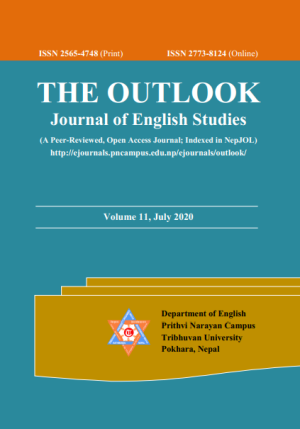Diaspora and Diasporic Literature: Condition to Consciousness
DOI:
https://doi.org/10.3126/ojes.v11i0.36363Keywords:
Dispersal, diasporic consciousness, expatriation sensitivity, nostalgia, rootlessnessAbstract
The term "Diaspora" originated from the experience and state of the Jews of being exiled into many countries back in the eighth century BCE. However, the definition of diaspora derived from the Jewish condition has changed and expanded; so has the concept of diasporic literature. In this context, the aim of this article is to inform the readers that there are some clear lines of demarcation between these key terms namely “Diaspora” and “Diasporic Literature” by showing the discrepancy between these two key terms that are most frequently used and are liable to be conflated in existing and upcoming diaspora discourse due to lack of its deeper understanding. This paper draws from the scholars like Martin Bauman, Robin Cohen, Thomas Faist and Uma Parmeswaran who write on diaspora, and brings it into open discussion among academics whether being a diaspora is a condition or a consciousness? The article discusses how has diasporic literature so far been understood and what are the alternative ways to comprehend it. It concludes that if a piece of literature has some of the qualities of diasporic literature as articulated by Parmeswaran, it will be apt to call it diasporic literature, instead of labeling it as emigrant’s or immigrant’s literature based on the origin, e/(im)migration, station or mobility of the author.
Downloads
Downloads
Published
How to Cite
Issue
Section
License
This license enables reusers to distribute, remix, adapt, and build upon the material in any medium or format for noncommercial purposes only, and only so long as attribution is given to the creator.

